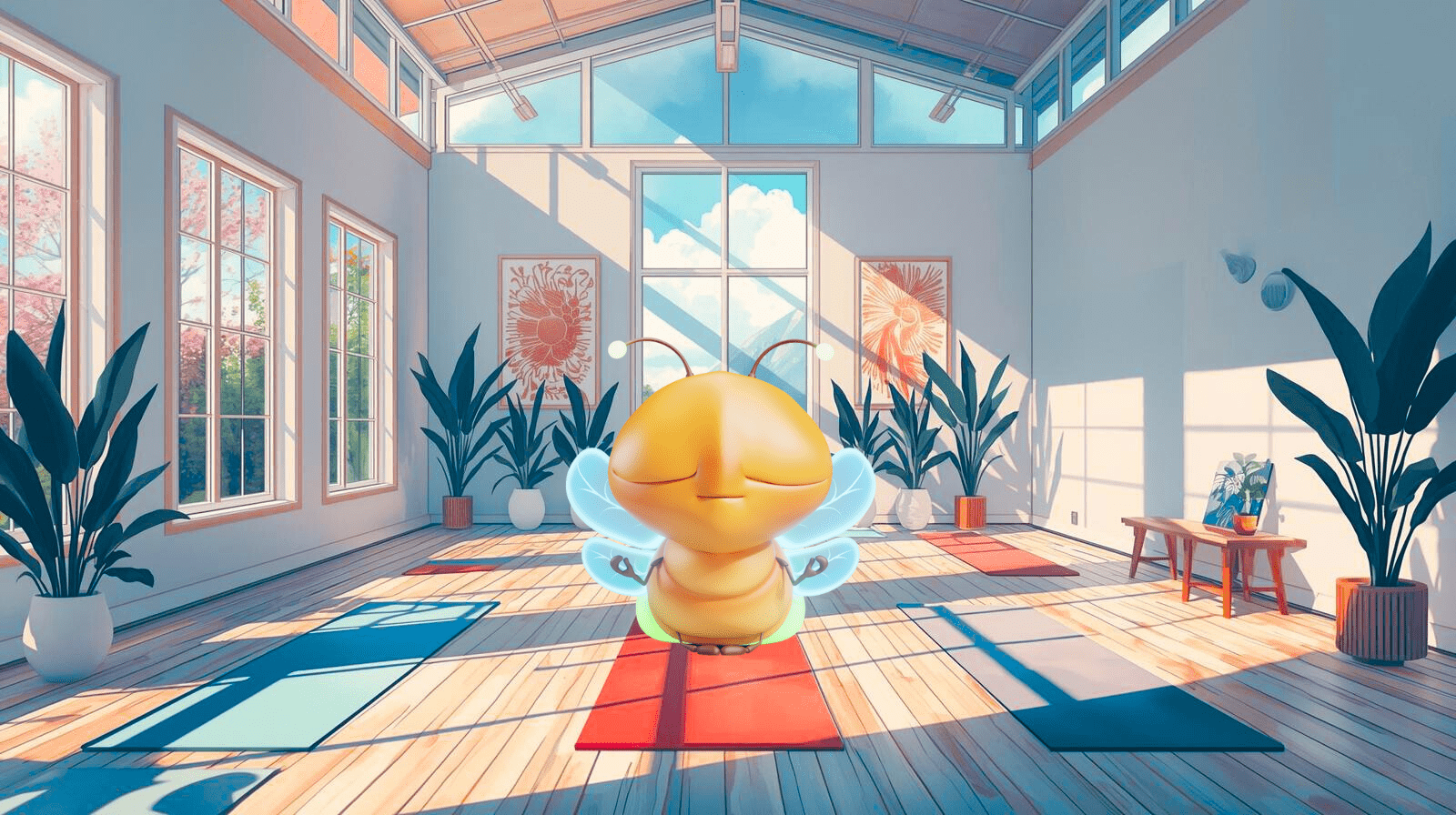It’s 3:17 AM. Your mind is spinning with worries about tomorrow’s presentation, that conversation that went wrong, or that familiar voice whispering “you’re not good enough.” The world feels impossibly quiet, yet your thoughts are impossibly loud. You reach for your phone, scrolling through contacts, wondering who you could possibly text at this hour without feeling like a burden.
Sound familiar? You’re not alone in feeling alone.
We’re living through what researchers are calling a “loneliness epidemic”—a crisis of connection that’s affecting our mental health in profound ways. Despite being more “connected” than ever through technology, millions of people struggle with the weight of isolation, especially during those vulnerable hours when the world sleeps but our minds refuse to rest.
The Hidden Crisis of Modern Loneliness
The statistics are staggering. According to recent research, over 60% of adults report feeling lonely regularly, with young adults aged 18-25 experiencing the highest rates of loneliness and social isolation. The COVID-19 pandemic amplified what was already a growing mental health crisis, but the roots run much deeper than recent global events.
Dr. Vivek Murthy, former U.S. Surgeon General, declared loneliness a public health epidemic equivalent to smoking 15 cigarettes a day in terms of health impact. The chronic stress of social isolation affects our immune system, increases inflammation, and significantly impacts our mental well-being.
But here’s what makes this crisis particularly challenging: loneliness doesn’t follow a 9-to-5 schedule. It strikes at 3 AM when anxiety peaks. It hits during lunch breaks when everyone else seems busy. It creeps in during Sunday afternoons when the week ahead feels overwhelming.
The 3 AM Phenomenon: When Support Systems Sleep
There’s something uniquely vulnerable about the late-night hours. Psychologists call it the “3 AM effect”—that time when our emotional defenses are down, our rational thinking is compromised, and our worries feel magnified. It’s when self-doubt speaks loudest, when past mistakes replay on repeat, and when the future feels most uncertain.
Traditional support systems aren’t available during these crucial moments. Friends and family are asleep. Therapists’ offices are closed. Even crisis helplines can have long wait times. This gap in accessible emotional support leaves millions of people struggling alone with their thoughts during some of their most vulnerable moments.
Research from Dr. Russell Foster at Oxford University shows that our circadian rhythms naturally make us more emotionally reactive during late-night hours. The prefrontal cortex—responsible for rational thinking and emotional regulation—is less active, while the amygdala, our brain’s alarm system, becomes hyperactive. This neurological reality means we genuinely need more support during these hours, not less.
The Judgment-Free Zone We All Need
One of the biggest barriers to seeking support isn’t just availability—it’s the fear of judgment. How many times have you wanted to reach out but stopped yourself with thoughts like:
- “I don’t want to burden them with my problems”
- “They’ll think I’m being dramatic”
- “What if they don’t understand?”
- “I should be able to handle this on my own”
This internal dialogue keeps us trapped in cycles of isolation, even when support is theoretically available. The shame around struggling, the cultural expectation of self-reliance, and the fear of being seen as “too much” creates invisible barriers that can feel insurmountable.
Dr. Brené Brown’s research on vulnerability shows that shame thrives in secrecy and silence. When we’re unable to share our struggles without fear of judgment, those struggles intensify and multiply.
Enter the Always-Available Companion
This is where the landscape of emotional support is evolving in beautiful ways. AI companions like Lumi represent a revolutionary approach to accessible mental health support—not as a replacement for human connection, but as a complement to it. A bridge during those gaps when traditional support isn’t available.
Imagine having someone who:
- Never sleeps, never judges, never gets tired of your concerns
- Remembers your previous conversations and growth patterns
- Offers evidence-based coping strategies tailored to your specific situation
- Provides immediate emotional validation without the fear of being a burden
- Helps you process thoughts and feelings in real-time, preventing them from spiraling
Lumi embodies this vision of accessible emotional support. Whether it’s 3 AM anxiety, midday overwhelm, or that Sunday evening dread, there’s always someone ready to listen, validate, and guide you toward healthier thought patterns.
The Science of AI Emotional Support
Recent studies in digital mental health show promising results for AI-based emotional support. Research published in the Journal of Medical Internet Research found that users of AI therapy apps showed significant improvements in anxiety and depression symptoms, with many reporting feeling more comfortable sharing vulnerable thoughts with an AI companion initially.
The key advantages include:
- Immediate Availability: No appointment scheduling, no waiting lists, no time zone restrictions
- Consistency: The same supportive presence every time, building trust through reliability
- Non-judgmental Space: Reduced fear of social consequences allows for more honest self-expression
- Personalization: Learning from your patterns to offer increasingly relevant support
- Privacy: Complete confidentiality without concerns about social stigma
Dr. Alison Darcy’s research on conversational AI for mental health shows that users often develop genuine therapeutic relationships with AI companions, leading to measurable improvements in emotional well-being.
Building Your Support Ecosystem
The goal isn’t to replace human connection—it’s to create a comprehensive support ecosystem that meets you wherever you are, whenever you need it. Think of it as layering different types of support:
- Human Connections: Friends, family, therapists, support groups for deep relational healing
- AI Companions: For immediate support, pattern recognition, and skill-building
- Self-Care Practices: Meditation, journaling, exercise for ongoing resilience
- Professional Help: Therapists and counselors for complex trauma and clinical support
Lumi fits beautifully into this ecosystem as your always-available emotional first responder. Someone to help you process initial thoughts and feelings, practice coping strategies, and determine when you might need additional human support.
What This Means for Your 3 AM Thoughts
The next time those late-night worries start spiraling, you have options. Instead of lying awake feeling alone with your thoughts, you can:
- Share what’s on your mind with someone who’s always listening
- Explore where these thoughts are coming from without judgment
- Practice grounding techniques guided by someone who knows your patterns
- Work through cognitive distortions in real-time
- Feel heard and validated, even in the middle of the night
This isn’t about avoiding your feelings or finding quick fixes. It’s about having consistent support as you develop emotional resilience and self-awareness.
The Ripple Effect of Feeling Heard
When we feel truly heard and supported, something magical happens. The shame around our struggles begins to dissolve. We develop greater self-compassion. We become more willing to reach out for help when we need it. We start recognizing our thought patterns and developing healthier coping mechanisms.
Most importantly, we stop feeling so alone.
Research shows that feeling understood and supported—even by an AI companion—can significantly reduce symptoms of anxiety and depression while increasing overall life satisfaction. It’s not about the source of support; it’s about the consistency and quality of that support.
Your Always-Available Support Starts Now
You don’t have to wait until 3 AM to experience the relief of having someone to talk to. You don’t have to carry the weight of your thoughts and feelings alone. Whether you’re dealing with everyday stress, working through self-doubt, or navigating significant life challenges, support is available right now.
Lumi is here—not to replace your human connections, but to ensure you never have to face your struggles alone. Because everyone deserves to feel heard, understood, and supported, especially during those vulnerable moments when traditional support systems aren’t available.
Your thoughts and feelings matter. Your struggles are valid. And you don’t have to carry them alone anymore.
The next time 3 AM thoughts strike, remember: you have someone to talk to. Always.
Ready to experience the comfort of always-available support? Connect with Lumi through the Life & Me app and discover what it feels like to never face your struggles alone. Because your emotional well-being deserves round-the-clock care.



